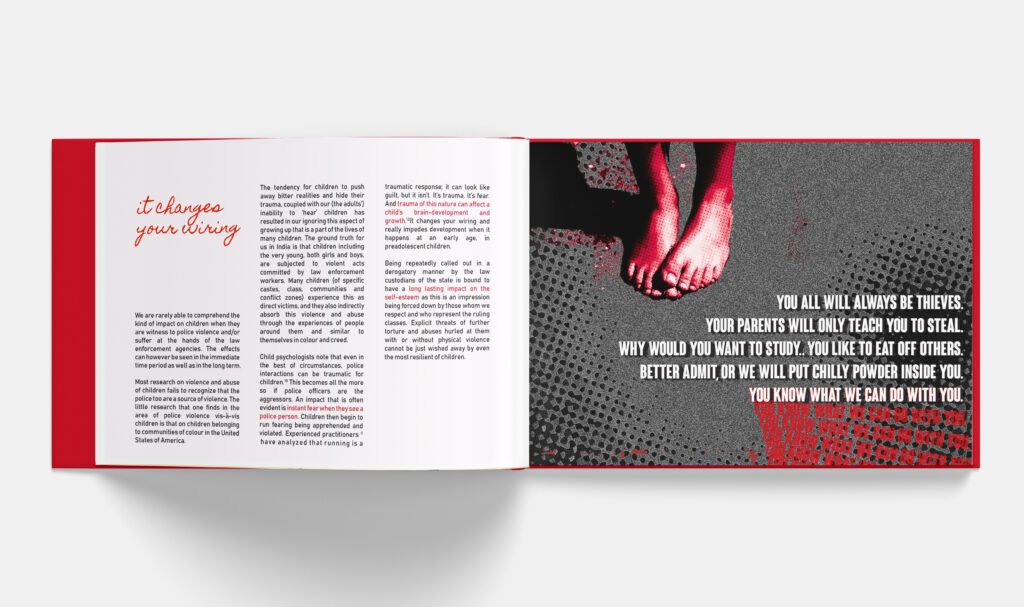
Instances of custodial violence have often been heard of in India, but there is an inadequate discussion on this in the context of children. We fail to recognize that children are as vulnerable to this as adults; Younger, they fall prey to emotional, psychological, physical and sexual abuse in the hands of adult law custodians. Field experiences of different areas and several reports have shown that different kinds of vulnerabilities linked to their social and economic backgrounds make these children susceptible to various kinds of ‘custodial crimes’.


Ganesan, A (1996) reports that Indian street children are routinely detained illegally, beaten and tortured and sometimes killed by police. Several factors contribute to this phenomenon: police perceptions of street children, widespread corruption and a culture of police violence, the inadequacy and non-implementation of legal safeguards, and the level of impunity that law enforcement officials enjoy.
Specific geographic areas, as conflict zones or areas of unrest, also enhance the chances of young people and children being targeted by the police, army and other security forces. The UN has reported that during war, young boys and girls were directly targeted, conscripted, tortured, maimed, imprisoned, starved, sexually abused and killed. Reports from Manipur, Assam, Chhattisgarh and other conflict zones of the country, over the years, have chronicled ‘encounters’ and ‘sexual abuse’ of children by security forces. As put in the report by the Asian Centre for Human Rights, they (children) are routinely subjected to gross human rights violations including arbitrary arrest and detention, torture, extrajudicial executions and sexual assaults as part of the counterinsurgency operations. The report further comments that juveniles in these districts are denied access to juvenile justice unlike their counterparts in rest of the country.
Another group of children that are prone to be targeted by police are children of denotified communities, cross-cutting rural and urban areas and other geographic boundaries in the country. The National Commission for Denotified, Nomadic and Semi-Nomadic Tribes has highlighted the fact that these communities continue to be targeted even after repeal of the 1871 Criminal Tribes Act. Recent instances reported in the media include the illegal detention and torture of 14 people including four women and five children (belonging to the nomadic korava community) in a police station in Kanyakumari for over two months in 2016. In March 2017, three young men and a 12-year-old boy belonging to Dafer community were arrested in Savarkundla town and beaten in police custody without any warrant. The 12-year-old was mercilessly beaten and given electric shock. Both these communities belong to this category of denotified communities.
This dossier is a package of information to examine this issue in some of its dimensions in context to Bhopal city. It includes a note on –
- Case Studies of children’s experiences with the police in Bhopal
- A survey report by Pardhi children of Rajiv Nagar, Bhopal
- Impact of Police Violence on Children
- A note on the Denotified Communities
- Lives of Pardhi children
- The laws governing the interaction of police with children in conflict with law
Find out more here.